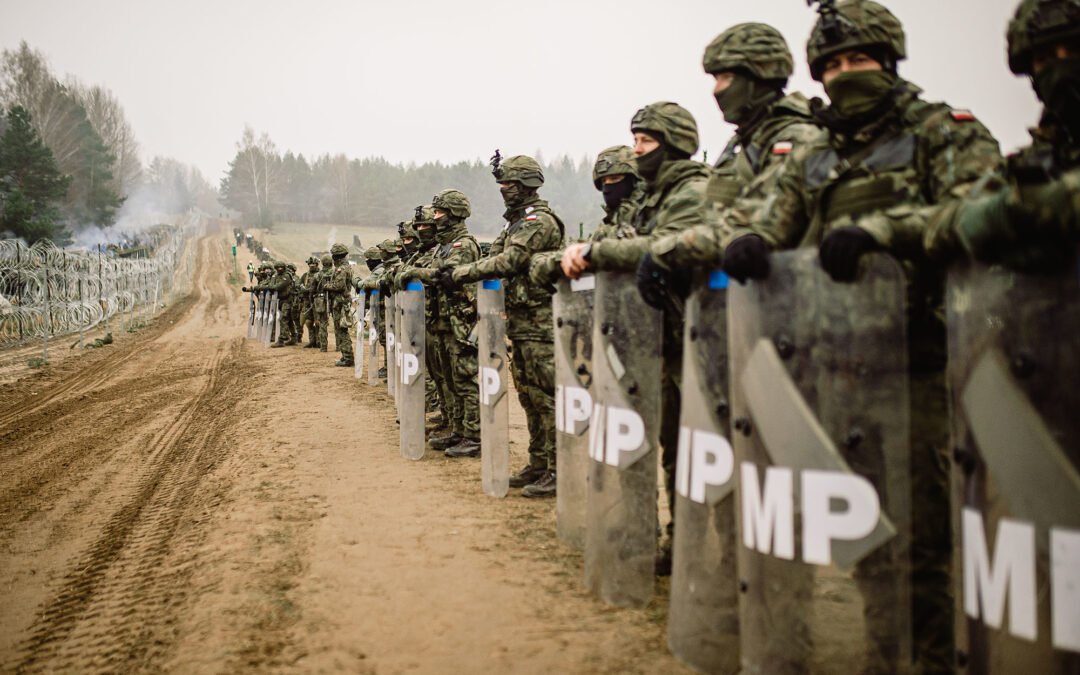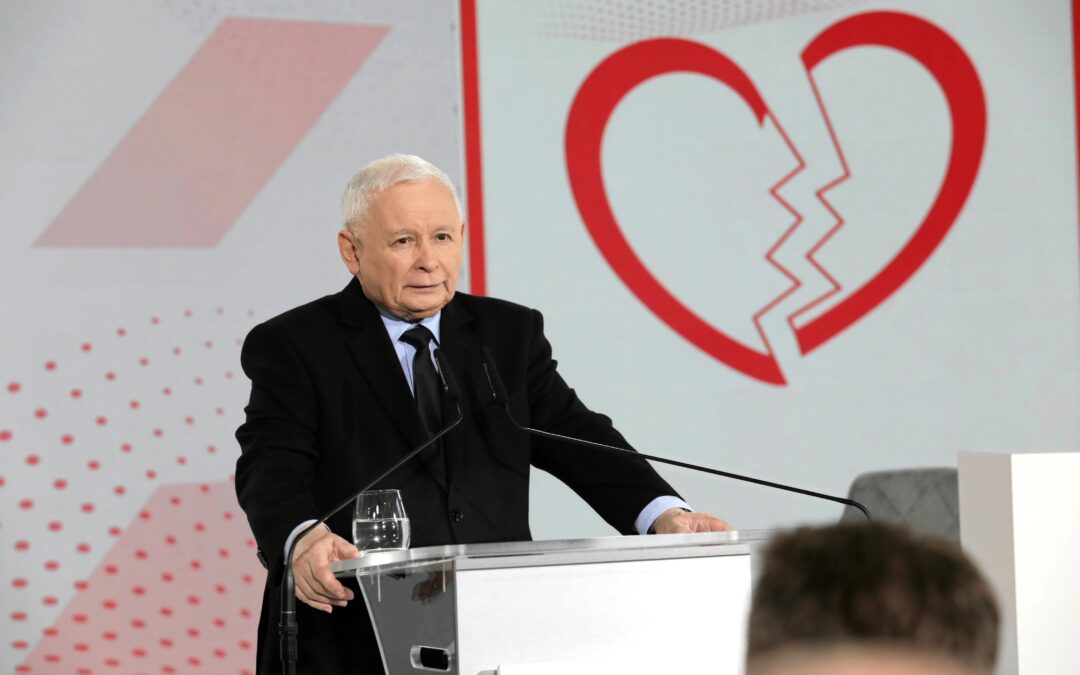Shortly before a state of emergency on Poland’s border with Belarus was due to expire, President Andrzej Duda has signed into law a bill that authorises the government to effectively extend the measures, which include a ban on the media and NGOs entering the area.
The legislation was rushed through parliament today, with the lower-house Sejm, where the government has a majority, overturning all amendments suggested by the opposition-controlled Senate. Senators had, among other things, called for journalists to be exempted from the ban.
Soon after the bill was signed by Duda this evening, the interior ministry announced that it would move immediately to extend for a further three months restrictions on all parts of the border where they are currently in place.
Zakaz przebywania wprowadzimy tam, gdzie obecnie obowiązuje stan wyjątkowy, czyli w pasie 183 miejscowości przy granicy z Białorusią – poinformował we wtorek PAP wiceszef MSWiA Błażej Poboży.#PAPinformacje https://t.co/Ld86Q3Wcq6
— PAP (@PAPinformacje) November 30, 2021
Since early September, the area along the border has been under a state of emergency, implemented in response to attempts by tens of thousands of people – mostly from the Middle East – to cross into Poland from Belarus. The crisis has been engineered by the Belarusian regime, which helps the migrants reach and cross the border.
Under the Polish constitution, the initial 30-day state of emergency can only be renewed once, for a further 60 days. That extension took place on 1 October, meaning that the measures would expire at the start of December.
Unable to implement a new state of emergency, the government has instead moved to introduce similar powers into the existing law on protection of the state border.
Those measures, approved by the Sejm and now signed into force by Duda, allow the interior minister, after consultation with the head of the border guard, to issue a temporary ban on entry to areas on the border deemed to be “particularly vulnerable”, reports TVP Info.
Those exempted from the ban include people who live and work in the area, emergency services, police officers and soldiers on duty, as well as anyone “dealing with official matters or taking part in religious worship”.
Anyone else is only allowed to enter if they receive special permission from the commander of the border guard. The Senate had proposed exempting representatives of the media and NGOs dealing with humanitarian, medical or legal aid from the ban.
However, that amendment was rejected by the Sejm, along with seven others. Those included a requirement for the interior minister to report to parliament on border bans every 30 days and another amendment requiring that the provisions enabling a ban expire three months after entering force.
The banning of media and NGOs from the border amid an unprecedented humanitarian and security crisis has led to widespread criticism. The government, however, has argued that it was a necessary measure to allow the armed forces to respond to the threat at the border.
The new measures signed into law this evening will in theory allow journalists to return, but only with the permission of – and under conditions stipulated by – the authorities.
“One of the objectives of the law is the possibility of journalists entering this zone, but in an orderly manner, in a manner specified by the border guard,” said deputy interior minister Maciej Wąsik, quoted by TVN24.
“We want for journalists to be safe and for their work not to interfere in any way with the work of the border guard, the army and the police,” he added.
But the opposition has argued that the restrictions on the media are not only a violation of press freedom, but also counterproductive. It says that they help Belarus – which has allowed many international outlets access to its side of the border – to influence the media narrative.
“We will not win the propaganda war with Lukashenko and Putin if Polish journalists do not operate in the border zone,” warned Robert Tyszkiewicz, an MP from Civic Platform (PO), the largest opposition party.
“We are in favour of the border being protected, absolutely, but this law changes little when it comes to border protection,” said Arkadiusz Iwaniak, an MP from The Left, who suggested it was just a means for the government to “circumvent” the constitutional limit on how long a state of emergency can last.
The most severe pressures at the border have now eased. Many of the migrants in Belarus have opted to take repatriation flights to the Middle East and EU pressure has led major airlines to stop flights bringing new migrants to Minsk.
But there continue to be efforts every day by people to cross the border illegally. On Saturday, the Polish border guard reported that a group of over 100 people had forced their way over the frontier with the help of Belarusian forces, leaving two Polish soldiers with minor injuries.
Ponad 100-osobowa grupa cudzoziemców forsowała wczoraj granicę🇵🇱🇧🇾na odcinku ochranianym przez Placówkę SG w Białowieży.
Podczas ataku,służby białoruskie oślepiały polskich funkcjonariuszy i żołnierzy laserami i stroboskopem.
Dwóch żołnierzy WP zostało niegroźnie poszkodowanych. pic.twitter.com/FVYDrmujj2— Straż Graniczna (@Straz_Graniczna) November 27, 2021
Main image credit: Irek Dorozanski / DWOT (under CC BY-NC-ND 2.0)

Daniel Tilles is editor-in-chief of Notes from Poland. He has written on Polish affairs for a wide range of publications, including Foreign Policy, POLITICO Europe, EUobserver and Dziennik Gazeta Prawna.



















